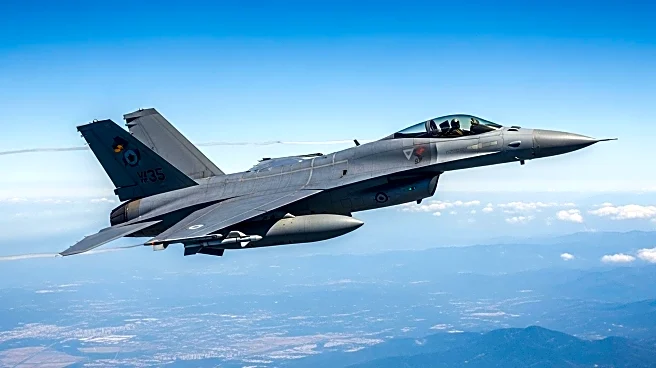What's Happening?
Israeli fighter pilots have been involved in high-profile missions targeting key figures within Hamas, including the elimination of Abu Obaida, the spokesperson for Hamas's military wing, and Mohammed Deif, a prominent commander. Lt. Col. E., a veteran pilot, described the complexity and significance of these missions, which were carried out under challenging conditions to minimize civilian casualties. The operations are part of ongoing efforts by the Israeli Air Force to neutralize threats posed by Hamas leaders, who have been responsible for orchestrating attacks against Israel. These missions are seen as critical in advancing the war efforts and protecting Israeli citizens.
Why It's Important?
The elimination of high-profile Hamas leaders by Israeli pilots is significant for regional security and the ongoing conflict between Israel and Hamas. These operations aim to weaken Hamas's command structure and reduce its capability to launch attacks. The targeted strikes also serve as a deterrent, potentially impacting Hamas's strategic planning and morale. For Israel, these missions are crucial in safeguarding its citizens and maintaining national security. The broader implications include potential shifts in the dynamics of the conflict, influencing diplomatic relations and military strategies in the region.
What's Next?
The Israeli Air Force is likely to continue its targeted operations against Hamas leaders, focusing on disrupting their command and control capabilities. These missions may lead to further escalations in the conflict, prompting reactions from Hamas and other regional actors. Israel's military strategy will likely involve increased intelligence gathering and precision strikes to minimize civilian casualties while achieving strategic objectives. The international community may respond with calls for restraint and dialogue, emphasizing the need for a long-term resolution to the conflict.
Beyond the Headlines
The ethical and legal dimensions of targeted killings in conflict zones are complex, raising questions about the balance between military necessity and civilian protection. These operations highlight the challenges faced by military forces in executing precise strikes while adhering to international humanitarian law. The long-term impact on civilian populations in Gaza, including potential displacement and humanitarian needs, underscores the need for comprehensive strategies that address both security and human rights concerns.










